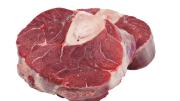A new study published by Harvard researchers provides “clear evidence that regular consumption of red meat, especially processed meat [such as bacon or hot dogs], contributes substantially to premature death,” according to lead author Frank Hu, professor of nutrition and epidemiology at Harvard School of Public Health, in a press release.
The study, published this week in The Archives of Internal Medicine, observed 37,698 men who were tracked for 22 years and 83,644 women who were tracked for 28 years; all were free of cardiovascular disease (CVD) and cancer when the tracking began. The subjects’ diets were assessed through questionnaires every four years.
Those who ate a card-deck-sized serving of unprocessed red meat each day on average saw a 13 percent higher risk of dying than those who did not eat red meat as often. If the red meat was processed, the study found, the difference jumped to 20 percent. A combined 23,926 deaths were documented in the two studies—with 5,910 from CVD and 9,464 from cancer. The researchers estimated that 9.3 percent of deaths in men and 7.6 percent in women could have been prevented during the course of the study had the participants consumed just half a serving of red meat per day.
Ingredients in red meat, especially processed red meat, such as heme iron, saturated fat, sodium, nitrates and certain carcinogens formed during cooking, have been linked to chronic diseases such as type 2 diabetes, heart disease, and cancer.
But the study also notes that replacing one serving of red meat with one serving of a healthy protein source—such as fish, nuts, poultry, legumes, low fat dairy, and whole grains—was associated with a lower mortality risk: “Choosing more healthful sources of protein in place of red meat,” Hu noted, “can confer significant health benefits by reducing chronic disease morbidity and mortality.”









